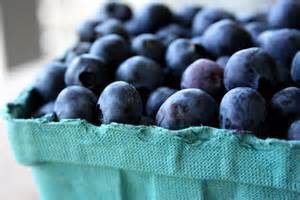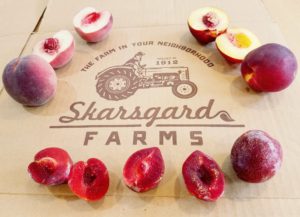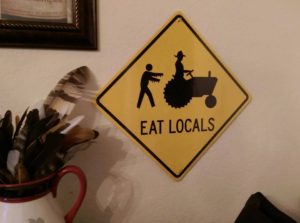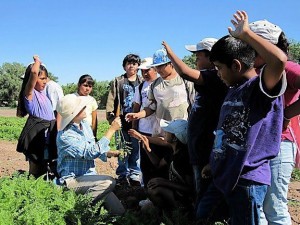Produce Notes: Red, White, and Blue!
Red strawberries, White Nectarines, and Blueberries headline another phenomenal week.
Tomatoes, spinach, Romaine lettuce, and cukes will be at the party too!

Fresh Pasta with Grape Tomatoes, Lemon, Garlic, Spinach and Shrimp.

In case you were hiking in the Sangre de Cristo Mountains and were without cell service, you know by now that it looks like Amazon will be the proud new owner of Whole Foods Market. So grab a coffee (or beer) and let’s look at what this means for the Organic movement and for the local food folks.
In my opinion, we should not fool ourselves for a single second that Amazon bought the Organic ideas, ethos, or philosophy of Whole Foods; they only bought the real estate. 460 stores worth of real estate to be precise. This is not a purchase of a brand, but it is Amazon’s cannon ball into the deep end to splash the food world and let competitors like Kroger and Wal-Mart know that Amazon is now in the Brick n Mortar food game. Amazon needed room on the Monopoly board game and they just bought Boardwalk and Park Place.
With that, we should read all of these articles about the Whole Foods sale as a death. Not a business sale. Because the company that brought us the Organic movement is gone and will never be coming back.
The Organic movement would not be where it is today without the presence of Whole Foods. Under the “question the status quo” leadership style of founder John Mackey, Whole Foods broke the mold of the unexciting stagnation that the American grocery store had become in the 1980s. Large manufacturers basically pulled the puppet strings of the grocery stores. So every store looked the same as every other grocery store and the food experience became a boring chore.
Whole Foods brought a fresh face to the grocery game. And part of that new look was a champion for Organic farmers and ranchers across the country. Organic became the buzz word in the ’90s which paved the road for the “Buy Local” food craze of the new century. Small Organic farmers driving around in beat-up trucks did not have the marketing influence to get folks to change their routine. People didn’t have choices when shopping and didn’t even know there was an alternative way to shop. Whole Foods planted the seed for consumers to question what was in the food they were eating. The 1990s was agriculture’s renaissance time here in the U.S.

This change of consumer behavior positively impacted farmers/ranchers both big and small in this country. Co-ops, CSAs, Farmers’ Markets, and Farm to Table programs all harvested the benefits of Whole Foods’ marketing campaigns. And for that, I am extremely grateful. We all should be.
But then an amazing thing happened; everything that Whole Foods tried to implement became available to all grocery stores. And the control that they held on Organic products ended. Beginning in January of 2015, Whole Foods became a victim of their own success. Other retailers wanted a piece of the Organic pie and got it. The monopoly was over.
Fast forward two and a half years later, Whole Foods experienced declining sales quarter after quarter. Add that with anxious stockholders and the next thing you know, Jeff Bezos is your boss. Oh, and that Organic ethos that was once the business card of Whole Foods is now in the recycle bin.
OK, so what does all of this mean? As this departure from the Organic ideals leave the company, they will be back-filled with the same products that every other store carries and the focus will solely be price driven. So instead of the manufacturers pulling the puppet strings on the grocery stores, the mega-stores (like Amazon and Wally-Mart) will be the ones calling the shots for the manufacturers. The pressure to cut corners to get the consumer a cheaper product will be so intense that by the end of the day, all we will be left with are cheap products.

It is on days like today when I realize the importance of the work that we do. We will continue to give a voice to the small farms and small producers. We needed someone like Whole Foods to act as a catalyst and bring attention to our work, but we do not need them any more folks. My dad took off the training-wheels on my bike one day and I had to ride that Huffy bike all by myself. Today is the day that the marketplace took off the training wheels for our community.
It is now up to all of us to support the local food producers or our food diversity will just be another casualty in this giant grocery consolidation that is shaping up.
Farmer Monte